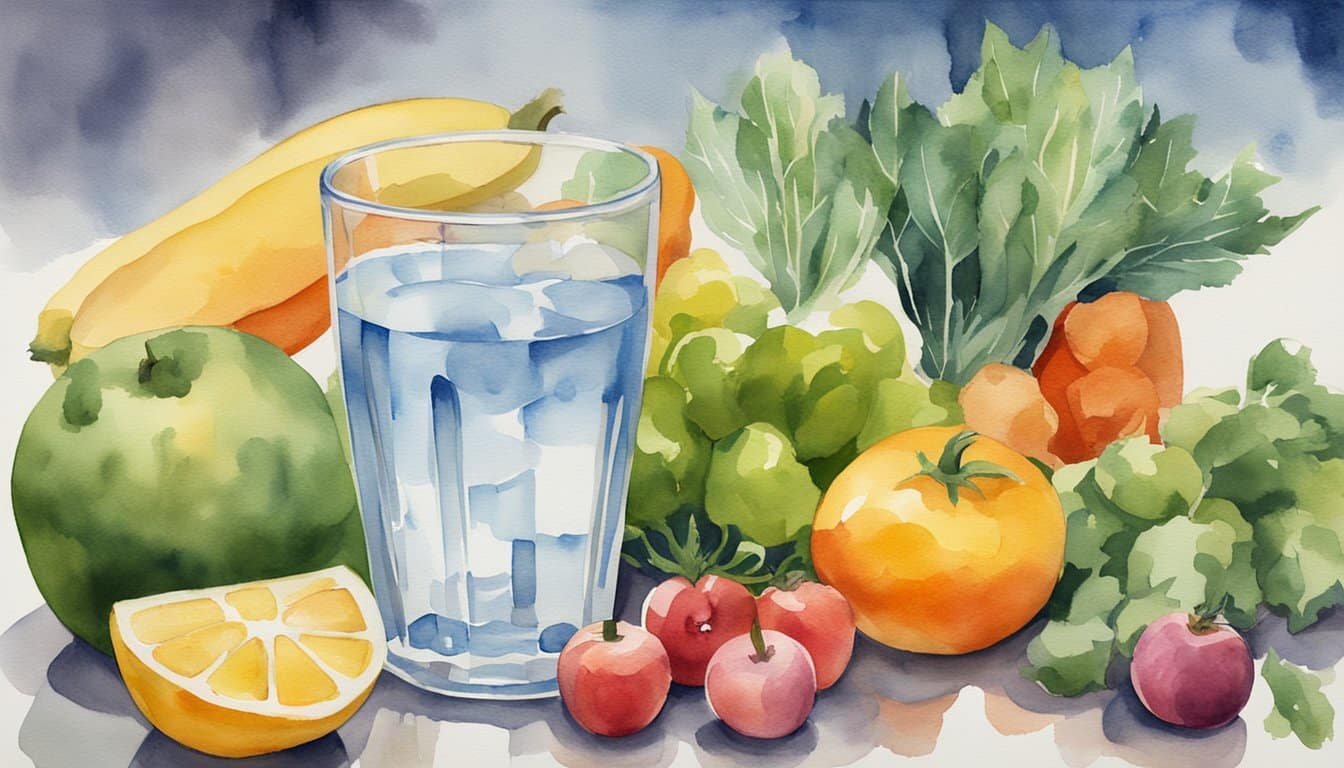Understanding Daily Water Requirements
When it comes to hydration, there’s no one-size-fits-all answer, but the U.S. National Academies of Sciences, Engineering, and Medicine have offered some guidelines. They suggest that women should aim for about 2.7 liters (91 ounces) of total water per day, while men should aim for about 3.7 liters (125 ounces) daily. This total water intake includes all beverages and food.
- For the average sedentary adult, this breaks down to around 8 cups (64 ounces) for women and 10 cups (80 ounces) for men from all beverages and foods.
- For those who are physically active or live in hot climates, water needs will be higher due to increased sweat and fluid loss.
It’s important to consider that personal needs will vary based on age, sex, body weight, activity level, temperature, and climate. High temperatures and hot climates can escalate the body’s water requirements, as can high altitudes. Those who exercise regularly might need to increase their water intake to compensate for loss through sweat.
A fascinating little-known fact is that about 20% of our daily fluid intake comes from food! That’s right, fruits, and vegetables like watermelon and cucumber are packed with water and contribute to hydration. The Institute of Medicine (IOM), now part of the National Academies, also acknowledges that there is no singular recommendation for water intake due to variability in individual water needs.
One can keep track of hydration by checking the color of their urine; pale and clear generally means well-hydrated, while dark indicates a need to drink more fluids. But remember, overhydration is also a concern, although it’s rare. Always listen to your body—it’s the best indicator of your personal hydration needs!
Health Benefits and Risks of Water Consumption

Drinking water is, without a doubt, vital for maintaining health. It works wonders from cushioning joints to regulating body temperature. Not to mention, staying properly hydrated boosts metabolism, which can aid in weight management. When it comes to physical activity, having enough water ensures top-notch exercise performance—after all, nobody wants to feel sluggish during a workout!
Now, let’s talk kidneys. These unsung heroes filter out waste, and ample water intake helps produce urine that’s light in color, frequent, and odorless—a sign they’re happy and healthy. Proper hydration can reduce the risk of kidney stones and keep those pesky urinary tract infections at bay.
However, it’s not just about quantity; balance is key. Too much can lead to hyponatremia, where sodium levels drop too low. On the flip side, too little may lead to dehydration, causing headaches, dizziness, and fatigue.
Regular hydration keeps bowel movements smooth, and nobody wants the discomfort of constipation. Plus, staying hydrated can help keep skin supple and give a person that sought-after glow. But remember, you can have too much of a good thing. Too much water can dilute vital electrolytes, leading to confusion or even more severe health concerns.
Finding that happy medium in water consumption is crucial—no one size fits all. Factors like a person’s energy level, diet, the amount of daily physical activity, and environmental conditions all influence the amount of water they need. Just think of your body as a garden; water it enough to thrive, but not so much that you flood it!
Remember, coffee-lovers and soda aficionados, urination, and sweat can deplete water reserves even more, so keep that H2O coming, especially when you indulge in caffeinated or salty treats.
Curious about the perfect balance of water for your body? Take a peek at the research on hydration and health.
Influences on Hydration: Food, Beverages, and Lifestyle

Hydration isn’t just about how much water one gulps down; it’s a balancing act involving several elements. For instance, fruits and vegetables are not just healthy snacks but also mini oasis of hydration due to their high water content. Think of biting into a crisp apple or chomping on cucumber slices — they contribute to your daily water intake.
Beverage choices also play a pivotal role. While water is the quintessential drink for hydration, other liquids like tea, coffee, and milk also count. But beware, caffeinated drinks can have a mild diuretic effect. On the other hand, juices and sports drinks offer a hydration boost, especially after workout sessions, yet one should navigate sugary drinks cautiously due to their high calorie count.
- Alcohol, a party favorite, often gets a thumbs down from the hydration perspective, as it can lead to the loss of fluids.
- Climate can be a stealthy dehydrator. Hot and humid weather demands more water to replace the fluid lost through sweat.
- Physical exercise scales up the body’s hydration needs.
For those with specific conditions or life stages, like pregnancy or nursing, fluid requirements may shift gears upwards. Similarly, if someone’s on a weight loss quest or tweaking their diet, the amount of water to consume isn’t a one-size-fits-all.
A vibrant array of beverages span from fat-free milk to vegetable juice, but it’s plain drinking water that often takes the crown for maintaining dental health, appeasing hunger, and aiding in nutrient transport.
Not only does water help flush toxins from the body, but it also carries vitamins and carbohydrates to where they’re needed. Imbibing in excess sugar or added sugar, like that lurking in regular soda, can affect the body’s water equilibrium negatively. So, reaching for high-quality sources of liquids, informed by peer-reviewed studies, is the key to savvy hydration. And let’s not forget the recommendations by trustworthy entities like the Mayo Clinic, ensuring your hydration strategy is on point.

